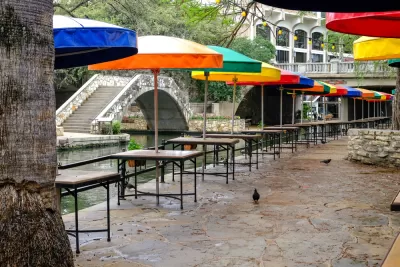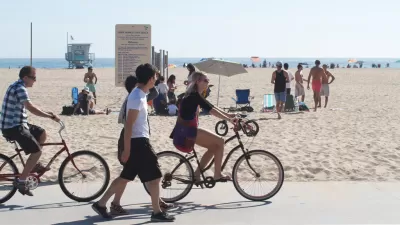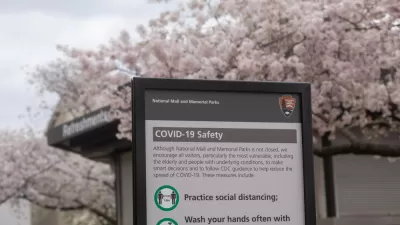More affluent people in the United States tended to stay at home sooner, and much more consistently, than low-income Americans according to location data tracked on mobile phones.

Location data is revealing the inequities of the coronavirus pandemic, as shown by who has the ability to stay home, and who has to go about their normal business and hope for the best while trying to hold down jobs and take care of families and themselves.
In cities across America, many lower-income workers continue to move around, while those who make more money are staying home and limiting their exposure to the coronavirus, according to smartphone location data analyzed by The New York Times.
Jennifer Valentino-DeVries, Denise Lu, and Gabriel J.X. Dance created this interactive feature to use words and graphics to illustrate the reality described above.
Although people in all income groups are moving less than they did before the crisis, wealthier people are staying home the most, especially during the workweek. Not only that, but in nearly every state, they began doing so days before the poor, giving them a head start on social distancing as the virus spread, according to aggregated data from the location analysis company Cuebiq, which tracks about 15 million cellphone users nationwide daily.
For more on the ability of mobile phones to track locations of both the healthy and the infected during the pandemic, see the Social Distancing Scorecard by Unacast, which has shifted since shared by Planetizen. Also see coverage of Google's efforts to report movement data, as reported by Steven Overly.
FULL STORY: Location Data Says It All: Staying at Home During Coronavirus Is a Luxury

Maui's Vacation Rental Debate Turns Ugly
Verbal attacks, misinformation campaigns and fistfights plague a high-stakes debate to convert thousands of vacation rentals into long-term housing.

Planetizen Federal Action Tracker
A weekly monitor of how Trump’s orders and actions are impacting planners and planning in America.

In Urban Planning, AI Prompting Could be the New Design Thinking
Creativity has long been key to great urban design. What if we see AI as our new creative partner?

King County Supportive Housing Program Offers Hope for Unhoused Residents
The county is taking a ‘Housing First’ approach that prioritizes getting people into housing, then offering wraparound supportive services.

Researchers Use AI to Get Clearer Picture of US Housing
Analysts are using artificial intelligence to supercharge their research by allowing them to comb through data faster. Though these AI tools can be error prone, they save time and housing researchers are optimistic about the future.

Making Shared Micromobility More Inclusive
Cities and shared mobility system operators can do more to include people with disabilities in planning and operations, per a new report.
Urban Design for Planners 1: Software Tools
This six-course series explores essential urban design concepts using open source software and equips planners with the tools they need to participate fully in the urban design process.
Planning for Universal Design
Learn the tools for implementing Universal Design in planning regulations.
planning NEXT
Appalachian Highlands Housing Partners
Mpact (founded as Rail~Volution)
City of Camden Redevelopment Agency
City of Astoria
City of Portland
City of Laramie





























